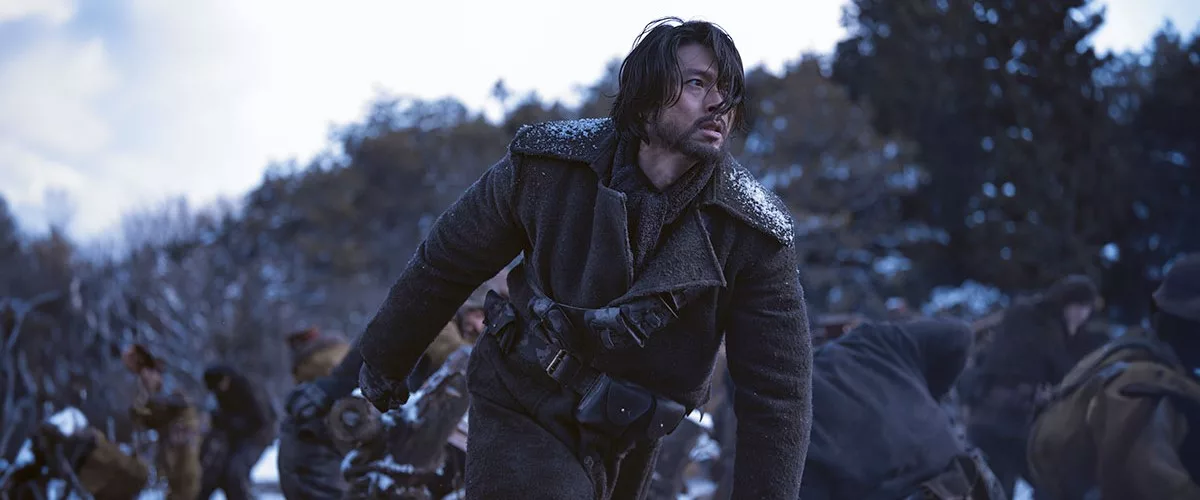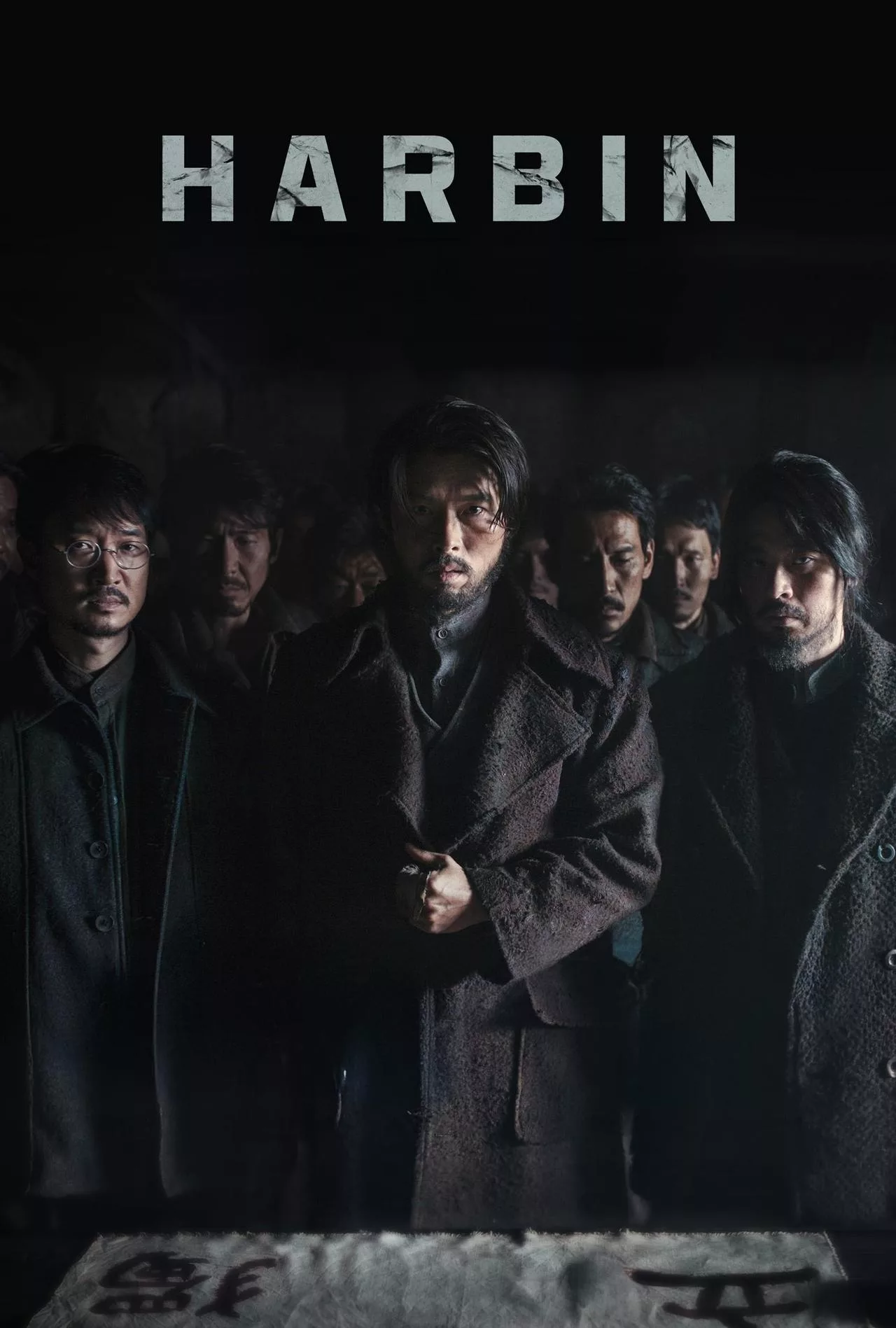A philosophy of action gets an undemanding workout in “Harbin,” a sleepy Korean spy thriller. Here, action doesn’t just provide movie-watchers with relief after so many scenes where sullen Korean freedom fighters either plan or resolve to attack their Japanese occupiers and also blow up Itō Hirobumi, Japan’s first prime minister. The movie’s style and presentation establish an understandably un-nuanced distinction between the movie’s brooding protagonists and their cruel Japanese counterparts. As in a lot of modern nationalistic action cinema, the bad guys in “Harbin” need killing because they’re merciless and unintrospective butchers.
By contrast, the Koreans take a lot of time and resolve to assassinate Itō (here played by “Shoplifters” star Lily Franky). That’s only so interesting, given how visually flat and poorly-paced “Harbin” tends to be whenever it’s most focused on its characters’ motivating feelings. Some handsome cinematography does too much heavy lifting throughout, despite apparent effort from the in-demand cinematographer Hong Kyung-pyo, whose credits include “Parasite” and “The Wailing.” Unfortunately, it’s hard to get too excited when all that effort is wasted on stick-figure heroes who talk a lot about but mostly hint at the depth of their characters.
It’s 1909, and the Korean Independence Army is not doing great. After a crushing defeat from the Japanese, led by the merciless Commander Mori Tatsuo (Park Hoon), a group of solemn beardos gather at a smoke-filled and naturally lit basement. They wonder how to proceed since one of their own agents, the doomed Ahn Jung-geun (Hyun Bin), failed to execute Mori when he had the chance. In an extended (and overlong) introductory sequence, Ahn’s mercy immediately backfires since Mori swiftly turns around and massacres Ahn’s colleagues. Ahn manages to escape and plays a key role in the group’s next mission: To kill Itō before he can act on his plan to annex Korea for Japan.
The plan, in theory, is to attack Itō following his five-day, trans-continental railway passage to snowy Harbin in China, which was then controlled by the Russians. Along the way, the Korean partisans stop to rendezvous with their foreign collaborators, including a visit to the Daedong Gazette’s office in Vladivostok. Some generic spy shenanigans pump the brakes on Ahn and his colleagues’ plans, including news of a Japanese mole in their midst. Ahn and his fellow patriots also frequently lament the murder of their fellow countrymen by the Japanese.
Ahn doesn’t always have to carry the barely rising plot; there are also secondary characters like the no-nonsense arms smuggler Miss Gong (Jeon Yeo-been) and her anxious comrade Kim Sang-hyun (Jo Woo-jin). Ahn’s group also sometimes gets ambushed by Mori, who’s still trying to regain his lost honor, and various other Japanese Imperial Army men. Unfortunately, the emotional temperature of most scenes doesn’t vary enough from moment to moment given the filmmakers’ over-emphasis on dead air, pregnant pauses, and expository outbursts. It’s a rare scene where everything we see adds something to our sense of who these characters are or why time doesn’t move so fast.
“Harbin” didn’t need to be shorter to be better, but a snappier, more focused movie about sullen, traumatized guerrillas might have been good. Too many scenes are presented in murky, unproductively long takes, which makes the characters look like two-dimensional silhouettes. Their dialogue isn’t much better, especially whenever they ask each other to think of their fellow comrades, which is often. That kind of hard-starched propaganda isn’t necessarily a no-go, but you’d have to set a better stage than the one that “Harbin” lays out for viewers.
It’s hard to imagine who might enjoy this deliberately slow and often punishingly slack historical drama. Maybe self-styled nationalists or established fans of individual cast members. Everyone else must reconcile the difference between the filmmakers’ artful intentions and their underwhelming execution. Even infrequent action scenes suffer from so much bland build-up. I don’t know that I needed to see, in a single unbroken take, the removal of a gun from a storage chest followed by the reflexive incomprehension on one would-be gunman’s face as he looks at his new eight-shot pistol. I’m not there with him; I’m watching a screen and am reminded of that every time the director fails to break down the characters’ emotions by highlighting something that happens on-screen.
A coda explains that the Japanese occupation only became more “violent and oppressive” after the events of the movie. Unfortunately, to establish that this period and not its bloody fallout is worth highlighting, you also have to establish that this particular moment of insecurity is somehow more meaningful than what came next. I don’t really see that here.




















